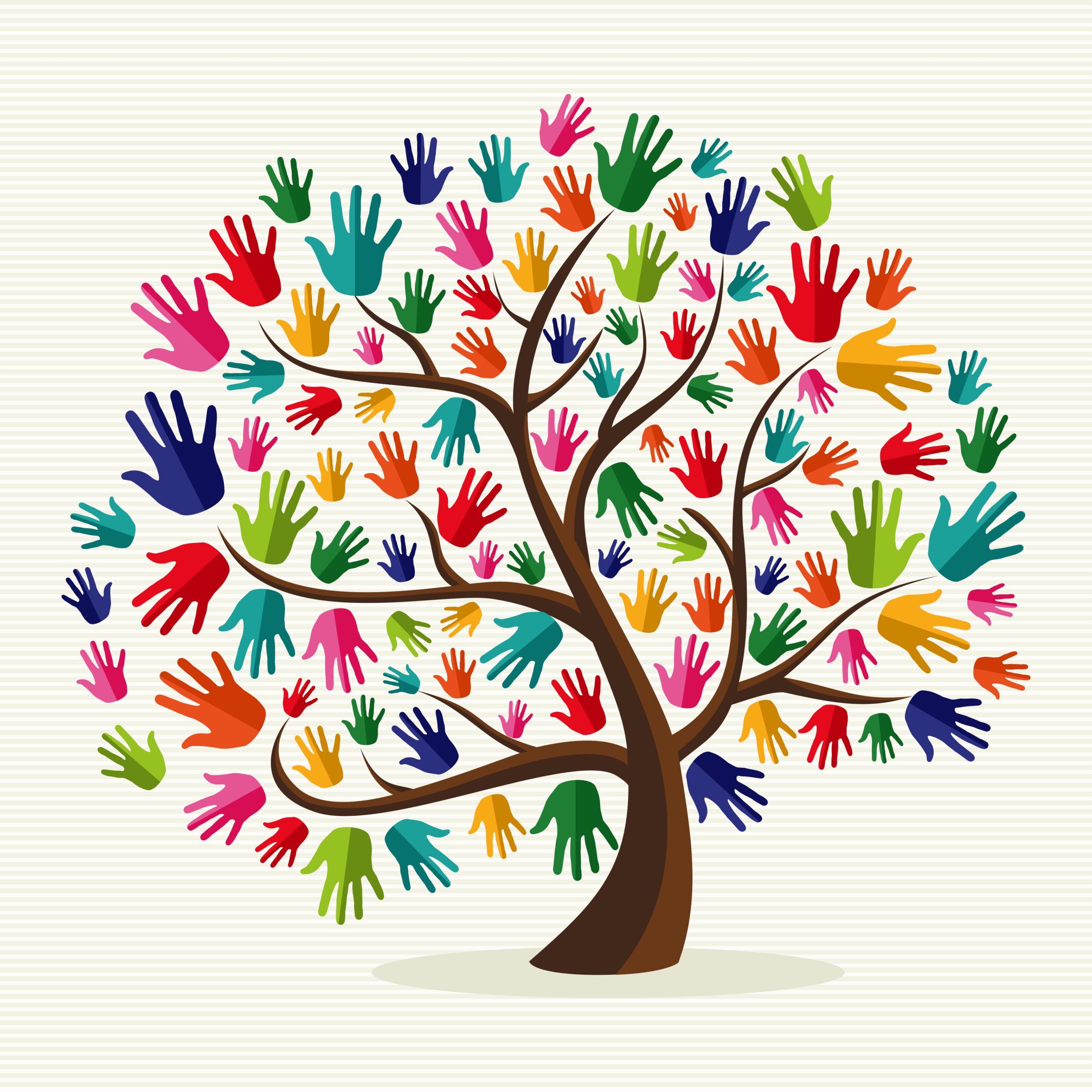
Specific forms of racism
Five broad groups are particularly affected by racism and discrimination: Roma, people of African descent and Black Europeans, Muslims, Jews and migrants.
What’s the issue?
Five broad “groups” are particularly affected by racism and discrimination:
- Roma – 78% of Roma in Slovakia and 73% in the Czech Republic experience discrimination when looking for a job.
- People of African Descent and Black Europeans – In the UK, Black people are at least six times more likely to be stopped and searched than a white person.
- Muslims – 1 in 3 Muslim respondents EU-wide experienced discrimination at least once over the last 12 months. In France, 85% of Islamophobic acts target women.
- Jews – 2 in 3 Jewish respondents consider anti-Semitism to be a major problem in the eight countries in which the majority of the estimated EU Jewish population lives.
- Migrants – In Greece, there were 154 incidents of racist violence – mainly physical attacks – committed against refugees and migrants in 2012.
Millions of people in Europe belonging to one or more of these groups face specific forms of racism – anti-Gyspsyism, Afrophobia, Islamophobia, anti-Semitism and xenophobia – which hamper their inclusion perspectives. These forms of racism have also been shaped by Europe’s history of colonial abuse and repeated persecutions against minorities.
EU laws against racism and discrimination already exist – including the Racial Equality Directive and the Framework Decision on Combating Racism and Xenophobia – but racism and its specific forms continue to be prevalent, ranging from very brutal acts of violence or harassment to extremely sophisticated forms of discrimination, instrumentalising Fundamental Rights to exclude minorities.
So far, most of these specific forms of racism have not been acknowledged, making it difficult to grasp and tackle the realities that Blacks, Muslims, Jews, Roma and migrants face in Europe.
What are we doing about it?
ENAR and others worked for many years to have a specific strategy for the inclusion of Roma in Europe. The adoption of the European framework for national Roma integration strategies in 2011 demonstrated the EU’s political will to fight the specific discrimination faced by its largest ethnic minority. Now, other communities experiencing specific discrimination also need specific actions and policies.
We are calling for Black Europeans, People of African Descent, Muslims and Jews to benefit from similar strategies which will ensure their social inclusion and protection from discrimination for the benefit of the whole society. More equal societies benefit all their members.
We advocate for the political recognition of the specific forms of racism affecting these particular groups, as well as of past abuses against them. Only if these are acknowledged, with their specificities and complexities, can they be sucessfully addressed by targeted policies.
We build bridges between different communities to strengthen solidarity and empathy, and to ensure minorities’ voices are heard in the EU: together we are stronger.
Further reading
Afrophobia
– ENAR Shadow Report on Afrophobia in Europe 2014-15 (2016)
– Video: Afrophobia in Europe
– Video: Activists and experts debate Afrophobia in Europe
– ENARgy webzine on recognition of past abuses (2015)
– Report of the launch event of ENAR’s book “Invisible Visibile Minority” (21 January 2015)
– ENAR book: Invisible Visible Minority: Confronting Afrophobia and Advancing Equality for People of African Descent and Black Europeans in Europe (2014)
– Report of the Hearing on Afrophobia (20 February 2014)
– Demand Catalogue for People of African Descent and Black Europeans (2014)
– General Policy Paper on people of African descent and Black Europeans (2013)
– Factsheet on people of African descent and Black Europeans (August 2012)
– ENARgy webzine on the International Year of people of African descent (June 2011)
Anti-Gypsyism
– ENARgy webzine on recognition of past abuses (2015)
– Progress made in the implementation of the National Roma Integration Strategies: ENAR comments (December 2013)
– General Policy Paper on Roma inclusion (2012)
– Debunking myths and revealing truths about the Roma (2011)
Islamophobia
– Report: Forgotten Women the impact of Islamophobia on Muslim women – Factsheet (2016)
– Forgotten Women: the impact of Islamophobia on Muslim women: ENAR project (2015-16)
– Response to the European Commission’s consultation on its annual colloquium on fundamental rights: “Tolerance and respect: preventing and combating anti-Semitic and anti-Muslim hatred in Europe” (2015)
– ENARgy webzine on counter-terrorism and counter-radicalisation from an equality perspective (2015)
– Briefing on anti-Semitism and Islamophobia in Europe (2015)
– Q&A on Muslims in Europe (2015)
– Shadow Report 2011-12 on racism in Europe – Focus on Islamophobia (2013)
Anti-Semitism
– Debunking myths on Jews in Europe (2015)
– Response to the European Commission’s consultation on its annual colloquium on fundamental rights: “Tolerance and respect: preventing and combating anti-Semitic and anti-Muslim hatred in Europe” (2015)
– Briefing on anti-Semitism and Islamophobia in Europe (2015)
– ENARgy webzine on anti-Semitism (2014)
Xenophobia
– Map of anti-migrant violence, hatred and sentiment in the European Union
– ENARgy webzine on migration and anti-racism (2015)
– Policy statement: Beyond ’refugees welcome’: what will EU Member States do to protect refugees and migrants from violence and discrimination? (2015)
– Response to the European Commission’s consultation on the future of Home Affairs policies: an open and safe Europe – what next? (January 2014)
– Joint NGO statement: EU Seasonal Migrant Workers’ Directive: Ensure effective equal treatment (May 2013)
– General Policy Paper on Migration (2009)
Related events
– 8 December 2015 – Roundtable on combating Afrophobia in Europe
– 14 October 2015 – Hearing on fighting racial discrimnation in housing: Forced evictions of Roma
– 21 January 2015 – Launch of ENAR’s book on people of African descent “Invisible Visible Minority”
– 16 December 2014 – Debate ‘Afrophobic stereotypes vs tradition: the case of Zwarte Piet in the Netherlands
– 20 February 2014 – Hearing on Afrophobia in the EU
ENAR contact person
Julie Pascoët, Policy Officer: julie@enar-eu.org



